By Amari Henderson
MURFREESBORO, Tenn. — Middle Tennessee State University recently hosted the banned book awareness event, “Let Freedom READ,” to facilitate public discussion around the increasing occurrence of book banning affecting libraries in local communities.
Held in the College of Education Building on campus, the event primarily focused on the legal ambiguity of the laws that determine which books are deemed too graphic for K-12 schools, with many of the books banned as too graphic to be made available in school libraries discuss topics such as race, religion and sexuality.
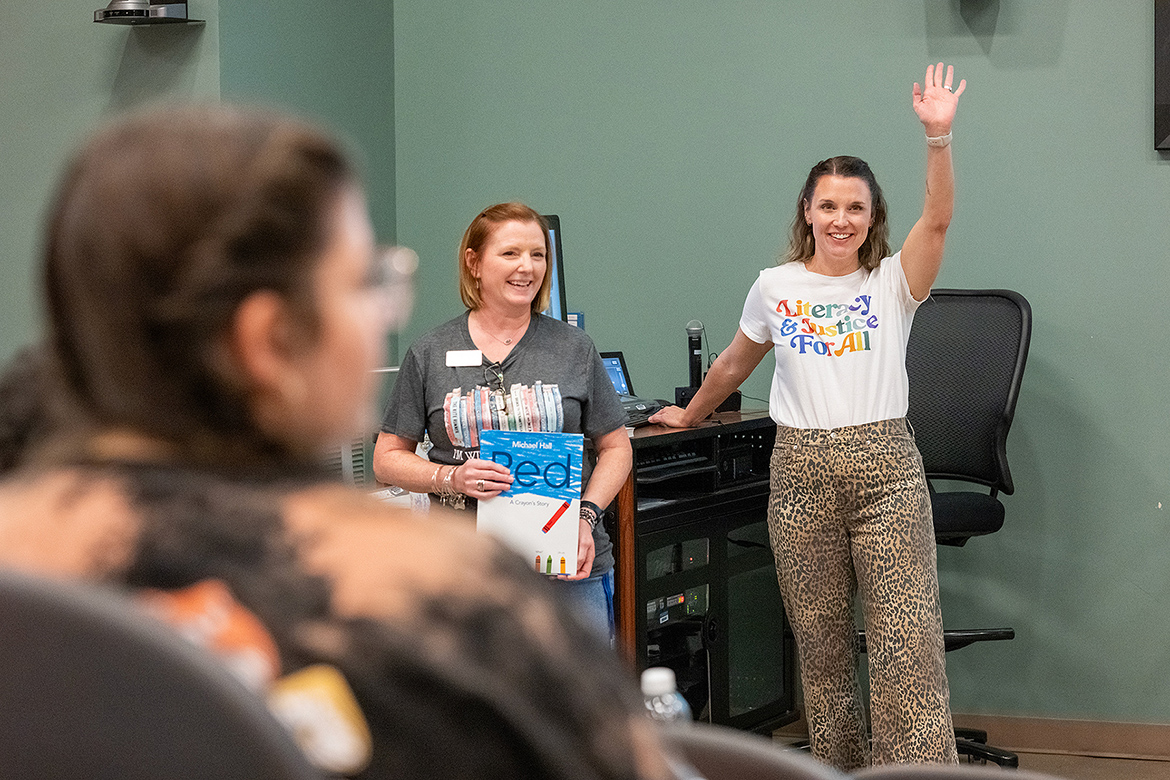
College of Education associate professor Katie Schrodt along with fellow Elementary and Special Education professors Janna McClain and Bonnie Barksdale hosted the event, which was co-sponsored by the college and the Center for Fairness, Justice and Equity and was part of MT Engage Week activities.
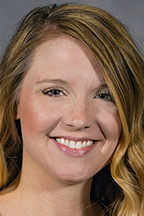
“We thought the event went great. We had about 80 participants and each person walked away with at least two books,” Schrodt said. “The audience was engaged, asking thoughtful questions and adding to the discussion. Participants included MTSU students, retired and current librarians, classroom teachers, and other community members.
“One highlight was the attendance of a high school student and a few elementary-aged children who were so brave and smart, speaking to the whole room about their thoughts on book restrictions! The event was a great success.”
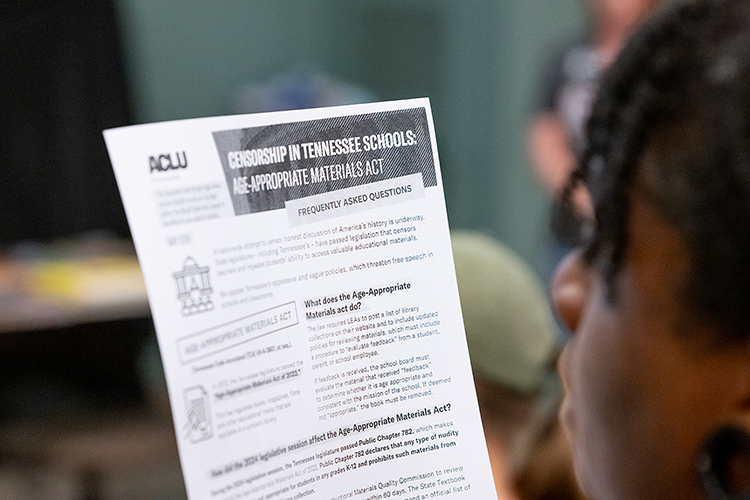
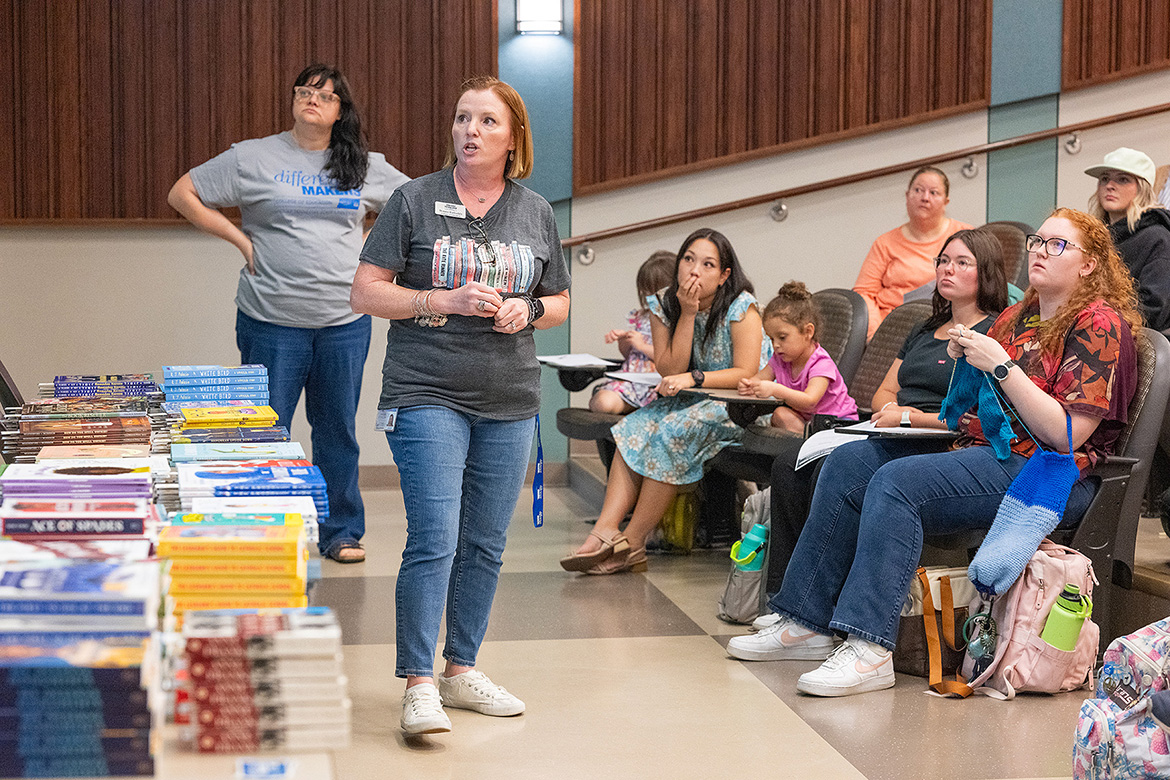
‘Omission is not an ethical avenue of history’
Many of the students that attended shared the sentiment that people in power may be using the ambiguity of these laws to censor history and form a particular narrative.
Jesse Peart, a 31-year-old English major from Detroit, Michigan, believes that some books were banned because of parental intervention.

“There are many books parents might wanna censor for being too graphic, violent, or sexual is one thing … but I think the other part is that parents are worried about certain ideas being seeded into their children, because kids are very impressionable and it starts right here in these books. And if they’re planting ideas into these books that their parents don’t agree with, then they’re gonna fight against it.”

Joshua Swartz, a 38-year-old English major and writing tutor from Pennsylvania, was one of the many aspiring educators who attended the event.
“I think it gets so blown out of proportion with the whole aspect of indoctrination, and the answer to that accusation is just full out restriction and censorship,” Swartz said. “There has to be a happier medium.”
Swartz believes that it is important for him to understand where the writers are coming from and how to properly articulate these topics.
“I think that a lot of times we judge a book by its cover… we see something that looks like something we don’t wanna talk about, and maybe we don’t want our children to talk about that (topic) because we don’t know how to have those conversations with our children,” he said.
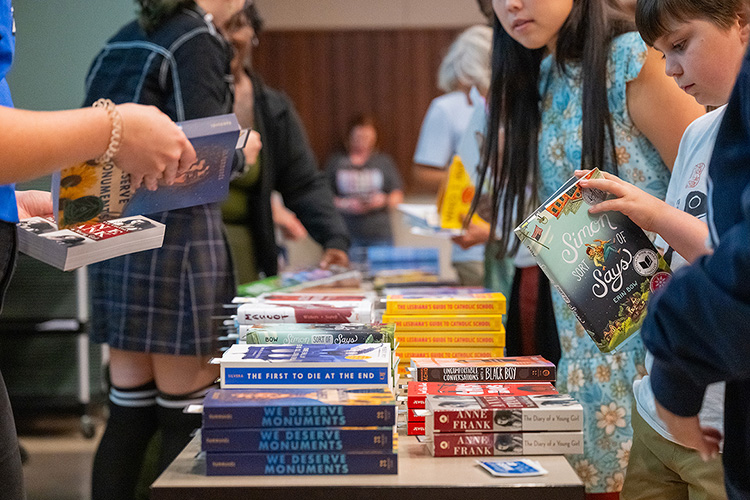
‘The importance of representation in literacy’
Student Ben Smith, a 21-year-old elementary education major from Murfreesboro, said he believes that many of these banned books are important because they cover important issues that people will inevitably talk about. He thinks it’s important for him and other aspiring educators to be able to have these conversations in a professional way.
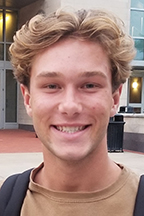
As a member of the LGBTQ+ community, Smith related to one of the books at the event titled “Red: A Crayon’s Story” by Michael Hall. The children’s book, which follows the journey a blue crayon with a red label trying to figure out its identity, has been banned by the Rutherford County School Board and can no longer be available in school system libraries.
“Representation is important in literacy, and I think taking that away not only discredits LGBTQ+ people but also humans in general, because that’s what we are,” Smith said.
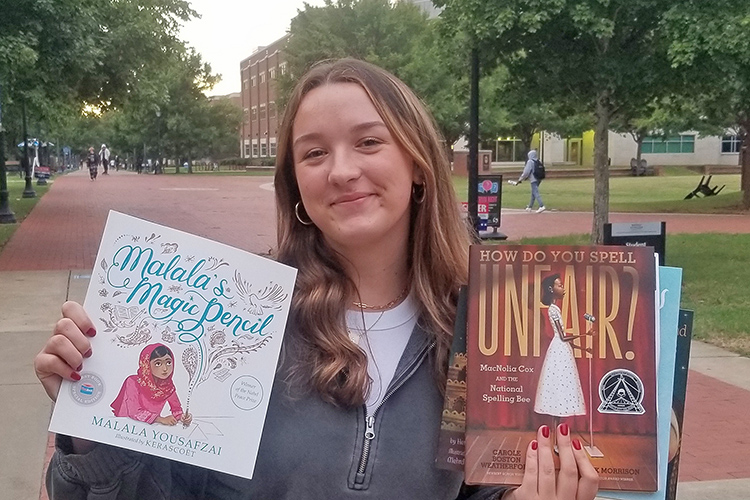
Smith’s friend Elly Casteel, a 20-year-old elementary education major from Columbia, Tennessee, commented on another book titled “Malala’s Magic Pencil,” a children’s book written by the Pakistani education activist Malala Yousafzai. The book stood out to her because she read the author’s autobiography,
“ I read ‘I am Malala’ in middle school and I think her story is important, as well as Muslim women gaining education,” Casteel said.
— Amari Henderson is a senior journalism major from Murfreesboro. He can be reached at arh9y@mtmail.mtsu.edu.
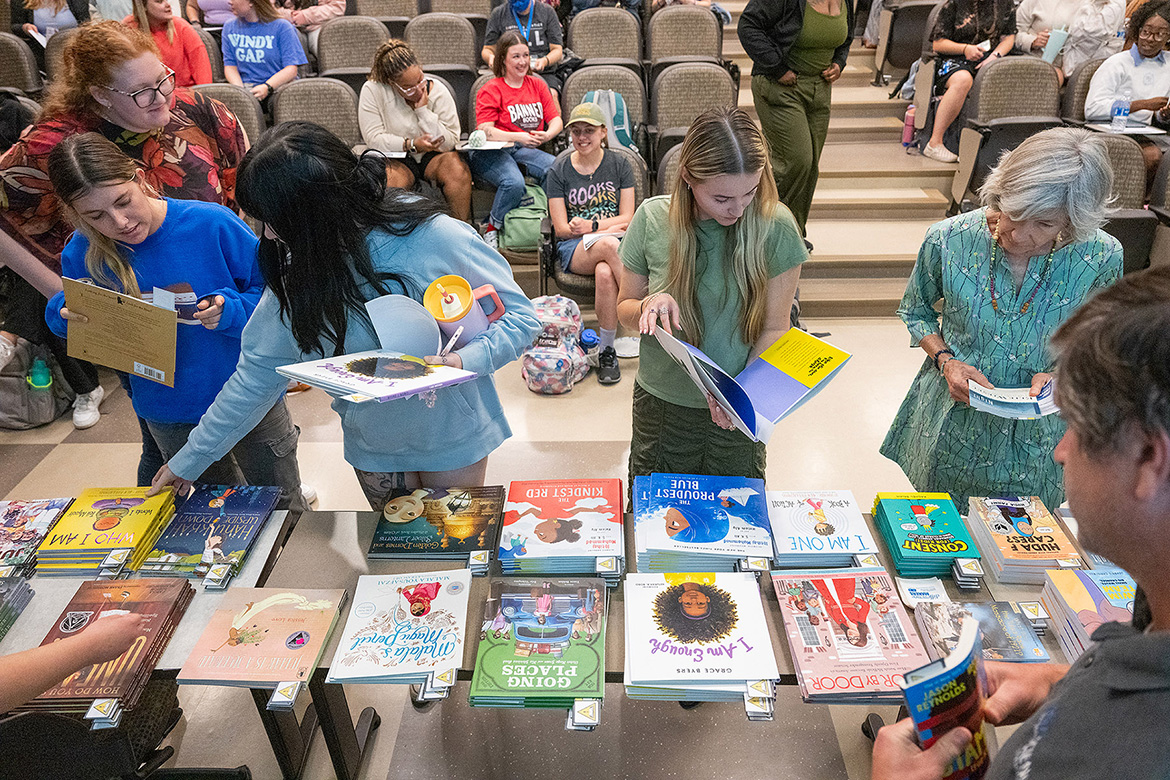

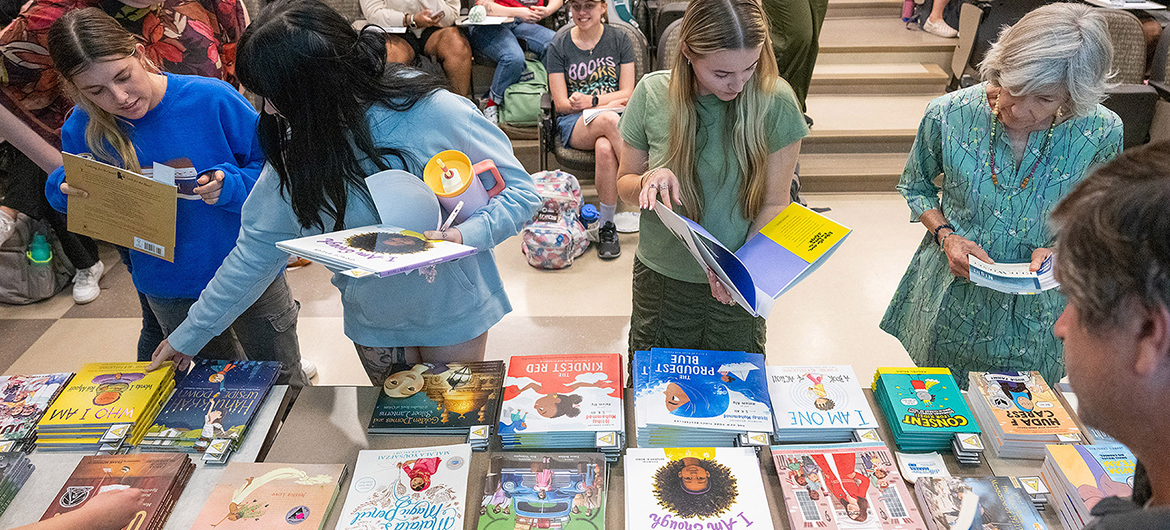
COMMENTS ARE OFF THIS POST